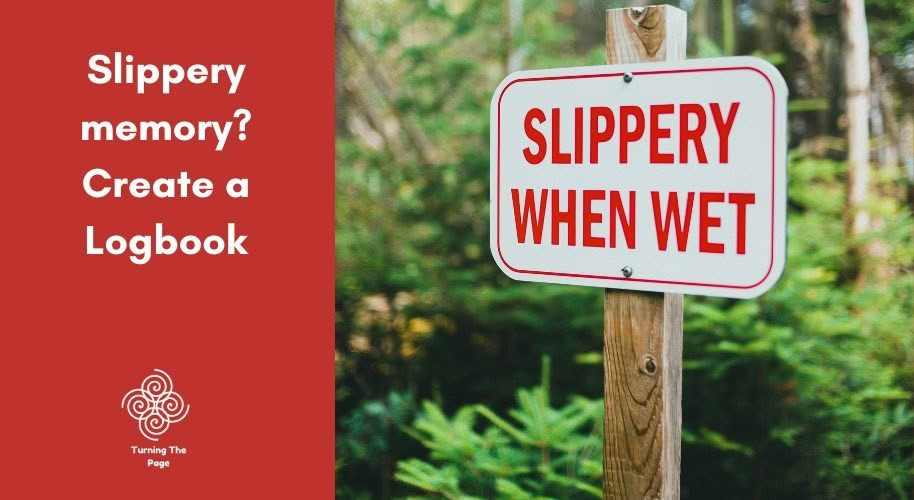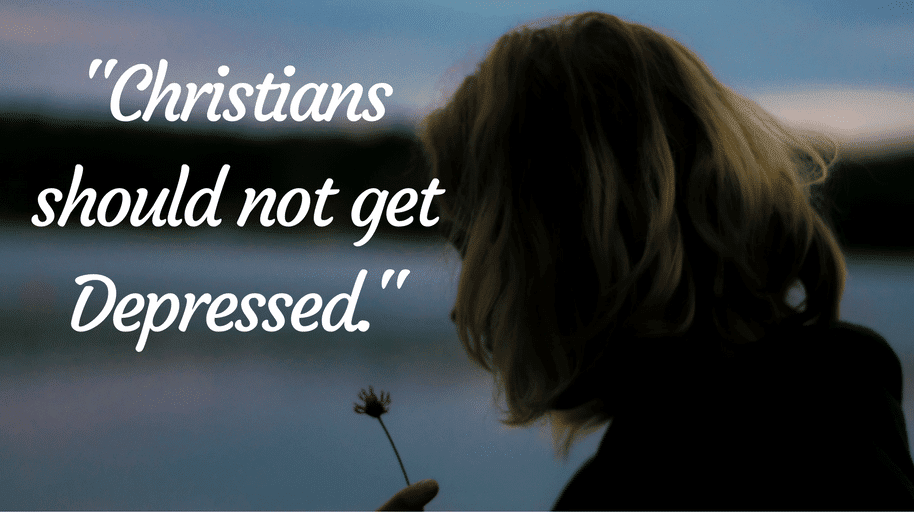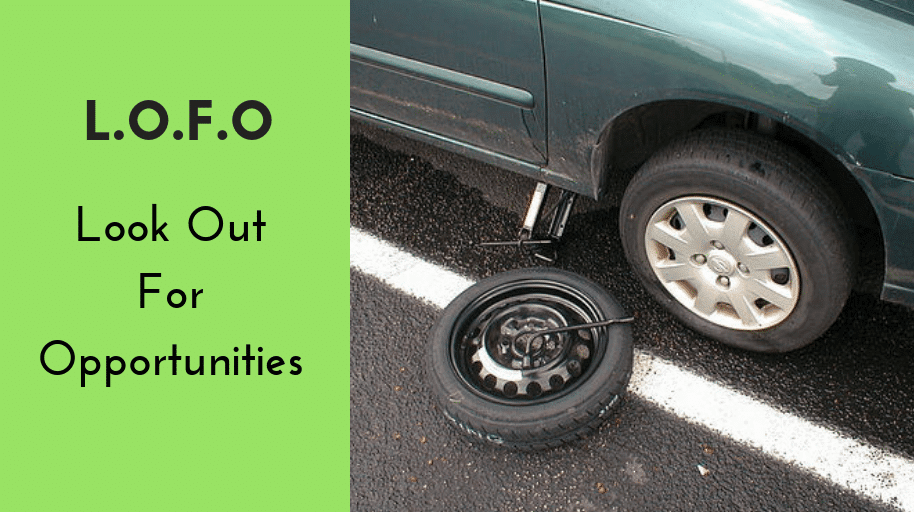I have a slippery memory. Memories of the good can slip away, but having a habit of recording the good can change our thinking in wonderful ways.
My mother kept a red ledger book in one of the kitchen drawers, and it kept her. It kept her grounded in the day’s reality.
My parents were farmers, and long before the days of computers and spreadsheets, records were kept in ledger books.
As she paid a bill for some item, my mother would write the date, the item and the value.
When a cheque was received for the sale of cows, sheep, or wool, then this too would be entered in the red book.
It was quite a celebratory day when the ‘Wool cheque’ arrived.
This record-keeping was important, and I remember Mum proudly talking to the accountant and answering any questions about the costs and expenses of the farm.
It was like Mum was keeping a record. A financial journal of farming activities.
We humans have slippery memories.
We hold on to things that aren’t good and let slide those that are.
Your brain is continually looking for bad news.
As soon as it finds some, it fixates on it with tunnel vision, fast-tracks it into memory storage, and then reactivates it at the least hint of anything even vaguely similar.
But good news gets a kind of neural shrug: “uh, whatever.”
In effect, the brain is like Velcro for negative experiences, but Teflon for positive ones. Rick Hanson, Ph.D.
Slippery memories
I came across the phrase ‘slippery memories’ from John Flavel.
Do not trust your slippery memories with such a multitude of remarkable passages of Providence as you have, and shall meet with in your way to heaven.
It is true, things that greatly affect us are not easily forgotten by us; and yet, how ordinary is it for new impressions to raze out former ones?
It was a saying of that worthy man, Dr. Harris: ‘My memory never failed me in all my life; for indeed, I durst never trust it.’John Flavel. The Mystery Of Providence
Do you have a slippery memory?
It’s so easy to let wonderful moments slip off our minds’ awareness. The echoes of past and present negative experiences fueling our doubt about kindnesses in the present and for the future.
We would rather soak in the regrets of yesterday, and rake over its muck, than enjoy the provision of today and the pearls we have.
God knows we have a slippery memory
In all of biblical history, one of the greatest acts of providence was when God parted the waters of the River Jordan, allowing the people of Israel to walk across on dry land. Joshua 3
After crossing the Jordan river God instructed Joshua to set up stones as a memorial. A place of remembering.
When the entire nation had finished crossing over the Jordan, the Lord said to Joshua:
‘Select twelve men from the people, one from each tribe, and command them, “Take twelve stones from here out of the middle of the Jordan, from the place where the priests’ feet stood, carry them over with you, and lay them down in the place where you camp tonight.”’
Then Joshua summoned the twelve men from the Israelites, whom he had appointed, one from each tribe.
Joshua said to them, ‘Pass on before the ark of the Lord your God into the middle of the Jordan, and each of you take up a stone on his shoulder, one for each of the tribes of the Israelites, so that this may be a sign among you.
When your children ask in time to come, “What do those stones mean to you?” then you shall tell them that the waters of the Jordan were cut off in front of the ark of the covenant of the Lord.
When it crossed over the Jordan, the waters of the Jordan were cut off. So these stones shall be to the Israelites a memorial for ever.’ Joshua 4:1-7
God wanted future generations to be reminded of providence.
Creating a logbook of provision
Throughout this series on provision, I have used the metaphor of a sailing boat.
Small boats have but small sails. John Flavel
Wise sailors keep logbooks.
In the logbooks are kept records of the navigation of the ship, the wind conditions and general management of the ship.
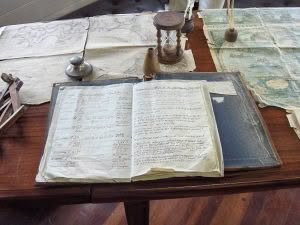
From this logbook, future journeys can be taken with greater confidence. Learning comes from the experience of the day.
For the past 40 days, before entering the new day by going to sleep, I have created an entry on my cell phone.
I have opened a note-taking app and reflected on this statement.
God saw a need for … and provided …
Then I list ten items of provision.
Here is what I wrote
1. For rest and providing a day at home
2. Order and motivated me to sort my garden shed
3. Getting paperwork done so encouraged me to do certain things that I had been putting off
4. Money and was given a donation
5. Exercise so gave me a bike to for a ride on
6. Physiotherapy and gave me a wonderful physiotherapist
7. Quiet and alone time and gave me a day at home by myself
8. Creative ideas for the website so gave me rest and then sparks of ideas
9. Clarity in my confusion about my writing and gave me some wisdom from another writer to help me focus
10. An owl that was hit by a car that needed a little tender loving care before it could fly off.
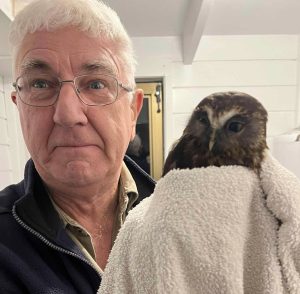
At times I have added a photo of something of the day. Another reminder of providence for my brain to form itself on.
I chose ten items because I wanted my mind to truly work. To have to think and not just stop when the going got hard.
This is an act of training the brain to go deep and not stay shallow with the easy and obvious.
What I have learned
- Provision is everywhere
It’s in the gift of work, and it’s also in the gift of rain for the soil. It’s in the conversation with the neighbour, and it’s in the work of the worms and soil microbes beneath our feet. It’s in the forgiveness of God and it’s in the forgiving of others who have hurt me. It’s in the love of a friend, and it’s in the joy of passing on love to another. - A new sense of peace
I have found a new place of contentment. That I worry less about the future and I don’t wallow so much in the past. I am more present to the provision of now. - A growth in awareness
I am more aware of what is happening in the now. My listening to the music of birds and giving thanks. Tasting the flavours of food and giving thanks for the provision of both taste and flavour. - The mind can change its focus
That the brain is indeed plastic and can change. New pathways can be formed, and new hope can be found. - I am looking outwards more
I am Looking Out For Opportnities (L.O.F.O.). Opportunities in so many areas seem to appear.
How about you building a bigger boat?
Building a bigger boat
Small boats
Have but narrow sails.
Small boats are constrained
By what they are
They wont cross
The oceans wide
For safe in their little harbours
They will securely hide
I want to see beyond the horizon crest
Explore the lands that siren call
Dance with Pink flamengos
Artic mountains oh so tall
I’m building a bigger boat
Building from the inside out
Chucking out the old beliefs
That have limited my sailors shout
That little boat never got me far
I long for something more
Expansive beauty beckons me
Leaving safety’s locked up door
I’m building from the inside out
Expanding ribs extending sail
Heavy keel is growing deep
Strenghtened hull that will not fail
Build with me Carpenter ancient old
Teach me stories of the sea
Wisdom lessons that I can hold
When the storms grow cold and bold
Show me how to catch the wind
How to set the sails
Light winds Howling gales
Confidence in your mariners hale
My boat is but my life
I dont want to live it small
Build me into a mighty craft
Even if others think I’m daft
I listen to your ancient ways
Daily build a little more
Slowly a mighty sailing ship emerges
Full of wonder, glory, and awe
I started with a little boat
Now it fills my view
Wide expansive sails grab the breeze
Taking me somewhere new
Quotes to consider
-
Do not trust your memory; it is a net full of holes; the most beautiful prizes slip through it. Georges Duhamel
-
Providence is like a curious piece of tapestry made of a thousand shreds, which, single, appear useless, but put together, they represent a beautiful history to the eye. John Flavel, Keeping the Heart
- The Providence of God is like Hebrew words – it can be read only backwards. John Flavel
- Providence carries our lives, liberties and concerns in its hand every moment. Your bread is in its cupboard, your money in its purse, your safety in its enfolding arms; and surely it is the least part of what you owe to record the favours you receive at its hands. John Flavel.
- Take heed of clasping up those rich treasures in a book, and thinking it enough to have noted them there; but have frequent recourse to them, as oft as new needs, fears or difficulties arise and assault you. John Flavel.
Questions to answer
- How ‘slippery’ is your memory? What helps you retain things?
- The ‘brain is like Velcro for negative experiences, but Teflon for positive ones.’ What examples in your life confirm this to be true?
- How do we create a stronger ‘Velcro brain’ for the positive experiences of life?
Formation exercise
- For the next month, before you go to sleep, write out 10 observations for the day where you have observed provision.
Further reading
Contact me

